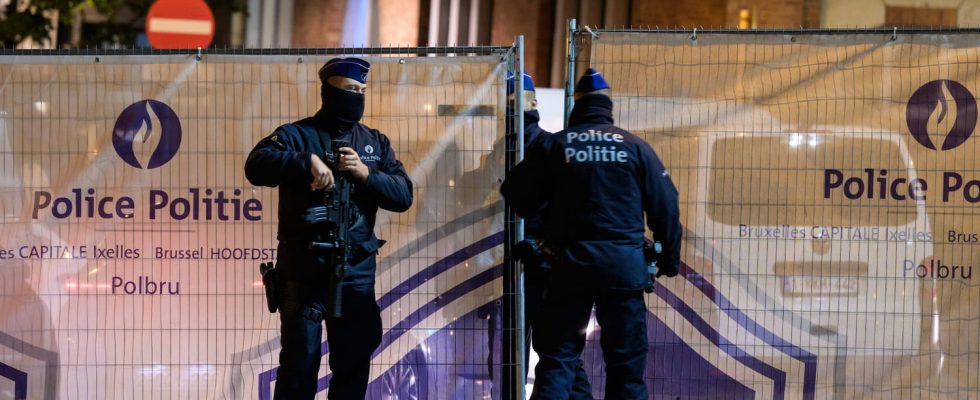Abdelsalem L. is the author of the shooting in Brussels on October 17 and claimed as a terrorist act. The man in an irregular situation was known to the police for serious crimes, but his radicalization had not been detected.
He sowed terror in the streets of Brussels. Abdelsalem L. is the perpetrator of the shooting that occurred in the center of the Belgian capital on the evening of Monday October 16. After fleeing for several hours, the 45-year-old man was found and arrested in Schaerbeek. Wounded by gunshot during his arrest, he died in hospital on the morning of Tuesday October 17, the federal prosecutor’s office said.
The Brussels attacker died without being able to explain his actions, but there is no doubt about the terrorist nature of the attack he carried out. In a video posted on social networks, a man resembling and presenting himself as the author of the attack claimed responsibility for the attack, expressed his membership in the Islamic State and boasted of having killed “three Swedish” in the name of Islam. The video, which is no longer available online, is currently being authenticated. But certain facts agree, the attack actually caused three victims of Swedish nationality, two died and another was seriously injured. And the desire to attack the Swedish community explains why the attacker acted on the evening of the football match between the Belgian and Swedish teams at the King Baudouin stadium.
The radicalization of Abdelsalem L. undetected?
Abdelsalem L. is presented by the Belgian authorities as a 45-year-old man “of Tunisian origin who was staying illegally” in the country. He had made an asylum request in November 2019 and received a negative response in October 2020, but his order to leave Belgian territory was never given to him according to details from RTBF. The assailant was known to the Belgian police services for very serious crimes: human trafficking, attacks on state security and illegal stay. But the police were unaware of his radicalization. “No concrete indication of radicalization” of the author of the attack existed according to Belgian Minister of Justice Vincent Van Quickenborne at a press conference on Tuesday morning.
The radicalized profile of Abdelsalem L. and his desire to fight for jihad were nevertheless reported by a foreign service in 2016. But at the time, the alert “was one of dozens of daily reports of this type” according to the Belgian Minister of Justice and no action had been taken.
Another report on the radicalization of the individual was recently issued by a resident of an asylum center, who reported the conviction of Abdelsalem L. in Tunisia for acts of terrorism. But the subject of the conviction turned out to be common law facts according to investigations by the Joint Information Center, created after the terrorist attacks of 2015 to bring together all information linked to terrorism. As a result, “there was no imminent terrorist threat detected” on the attacker’s profile, explained Vincent Van Quickenborne cited by RTBF.
Why did he attack the Swedes?
The perpetrator of the Brussels attack appeared to target specifically Swedish victims during the shooting. And the attack comes as Sweden has been the subject of numerous terrorist threats from Islamist groups for several months, threats which have increased after repeated desecrations of the Koran in the country. “The Swedish nationality of the victims is mentioned as a probable motivation for the act,” indicated the spokesperson for the federal prosecutor’s office, Éric Van Duyse.
If the motivations for the attack could be “revenge” by the suspect against Sweden, could the attack also have a link to the Israeli-Palestinian conflict? According to the Flamand newspaper Het Laatste Nieuws, Abdelsalem L. has several times mentioned the war between Israel and the Palestinian Islamist group Hamas on social networks. But the federal prosecutor’s office does not seem to give credence to this hypothesis: “At this stage, no element indicates a potential link with the Israeli-Palestinian situation.”
